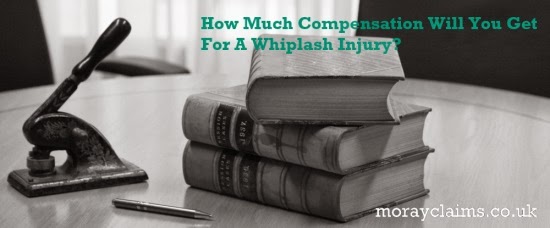
Photograph: “Spines” by Nicky Mack
Whiplash injuries to the upper spine can range widely in severity.
From neck stiffness lasting for a day or two, the symptoms can extend to pain and restriction of movement which persists for months or even years.
We have posted on this Blog previously about the “classic” whiplash accident mechanism – usually a road traffic accident involving a rear end shunt.
Whiplash remains a controversial injury, which has become a bit of a political football. Because there are no physical signs associated with whiplash symptoms – such as would show up on x-rays or other scans – exaggeration and fabrication of claims is always a possibility.
Likely claim value is a factor in deciding whether a claim is worth it or not
If you are considering making a whiplash claim, you will be wondering how much your claim is going to be worth.
It is reasonable to consider this, as you will want to weigh up whether it is going to be worth the time and effort in pursuing a claim.
It is not always straightforward to quantify injury compensation claims but whiplash is commonplace and, over many years, the courts have built up a body of case law which assists solicitors in their assessment of damages.
The purpose is to put you as the injured person back in the position you would have been in if the accident had not happened – so far as that is possible in purely monetary terms.
Use of the Judicial College Guidelines in valuing claims
One aid to valuation of the “pain and suffering” element of damages in personal injury claims in general and whiplash injuries in particular is the Judicial College (JC) (formerly Judicial Studies Board (JSB)) Guidelines.
In the Foreword to the first edition of the JSB Guidelines in 1992, Lord Donaldson of Lymington explained that: “Paradoxical as it may seem, one of the commonest tasks of a judge sitting in a civil court is also one of the most difficult.”
“This is the assessment of general damages for pain, suffering or loss of the amenities of life.”
“Since no monetary award can compensate in any real sense, these damages cannot be assessed by a process of calculation. Yet whilst no two cases are ever precisely the same, justice requires that there be consistency between awards.”
The intention of the Guidelines – which are reviewed and updated about every two years – “is to distil the conventional wisdom contained in the reported cases, to supplement it from the collective experience of the working party and to present the result in a convenient, logical and coherent form.”
What the JC Guidelines say about whiplash injuries
The analysis in the Guidelines gives broad categories based on the length of symptoms –
- Recovery period ranging from a few days to a few months – a few hundred pounds up to £1,500
- Recovery period ranging from a few months to one years – £1,500 to £3,100
- Recovery within a period between one and two years – £3,100 to £5,600
- Longer period of recovery leaving increased vulnerability to future symptoms – £5,600 to £9,800
- Permanent ongoing symptoms – £9,800 to about £18,000
As you can see, the suggested ranges of values are very wide in some instances.
In valuing a claim you are meant to take into account a number of “standard” factors, of which the length of time the symptoms have lasted is only one.
Examples of factors which are also important are –
- the severity of the neck injury
- the intensity of the pain and whether it fluctuates
- the presence of additional, related symptoms, such as headaches, and
- the impact on your work and social life.
But there may be unique factors in your case which could also have a bearing on the valuation.
Each case is different and remember that what we are talking about above is just your claim for pain and suffering (known as “solatium” in Scotland).
You will probably have several other heads of claim in addition, such as wage loss, cost of medical treatment, travel expenses and medication costs.
How we help you
Moray Claims’ specialist personal injury solicitors have extensive experience in whiplash claims.
Call us on 01343 544077 or send a free online enquiry form.
All initial enquiries are free of charge and without obligation.
We will advise what is in your best interests and, if we do not think we are the best people to help, we will tell you that and do our best to direct you to someone who can assist you in the circumstances.